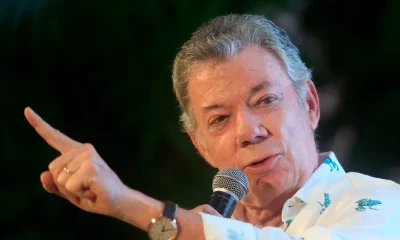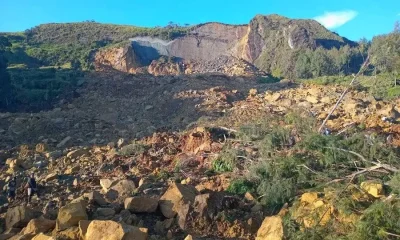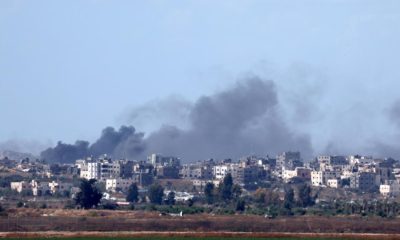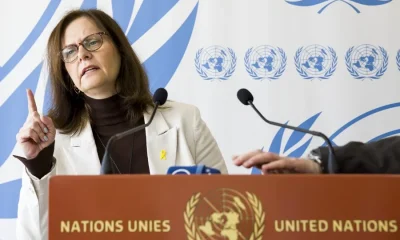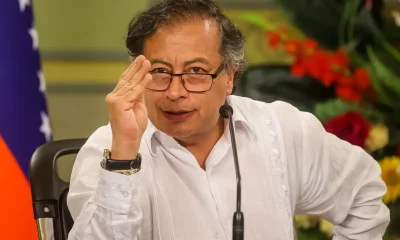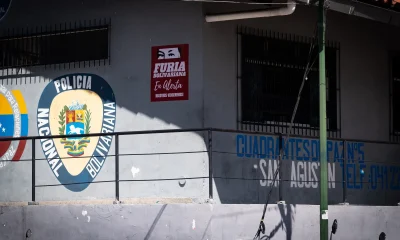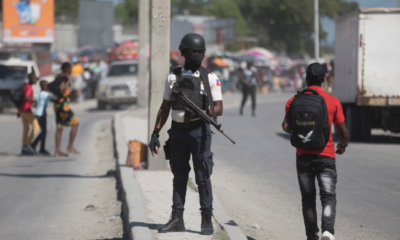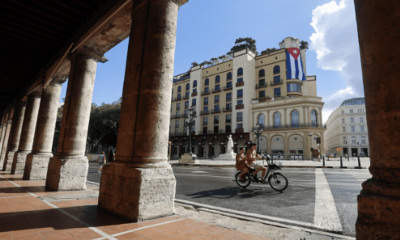Internacionales
Latin America and the Caribbean continue to be regions with high homicide rates, according to UN study
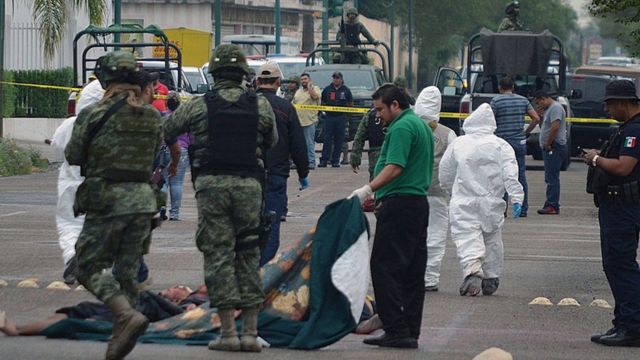
December 8 |
The United Nations Office on Drugs and Crime (UNODC) Global Homicide Survey has revealed that, in 2021, most of the countries with the highest homicide rates in the world are in Latin America and the Caribbean. Notable exceptions include South Africa, Myanmar and Iraq. Jamaica, in particular, stands out as the country with the highest homicide rate globally.
The Latin America and Caribbean region accounted for 27% of the 458,000 homicides recorded worldwide in 2021, consolidating its position as the most violent area on the planet, despite the overall downward trend. Countries such as Ecuador, Nicaragua and Panama are mentioned as exceptions to the general decline.
In 2021, eight of the ten countries with the highest homicide rates globally were in Latin America and the Caribbean, according to data compiled by UNODC. Not only does the region consistently maintain the highest homicide rate among all sub-regions, but it also led the world in the proportion of homicides related to organized crime.
Despite the high rates, the study indicates that the region has experienced a downward trend in homicide rates since 2017, especially due to the decline in Brazil. Between 2017 and 2021, the homicide rate in the region decreased by almost 14%. However, the evolution has been uneven, with some countries, such as Guatemala, experiencing increases in 2021 after years of decline.
Bolivia stands out as the country with the lowest homicide rate in the region, pointing to the diversity of situations in Latin America and the Caribbean in terms of security and crime.
Internacionales
Major winter storm threatens “catastrophic” ice and snow across much of the U.S.
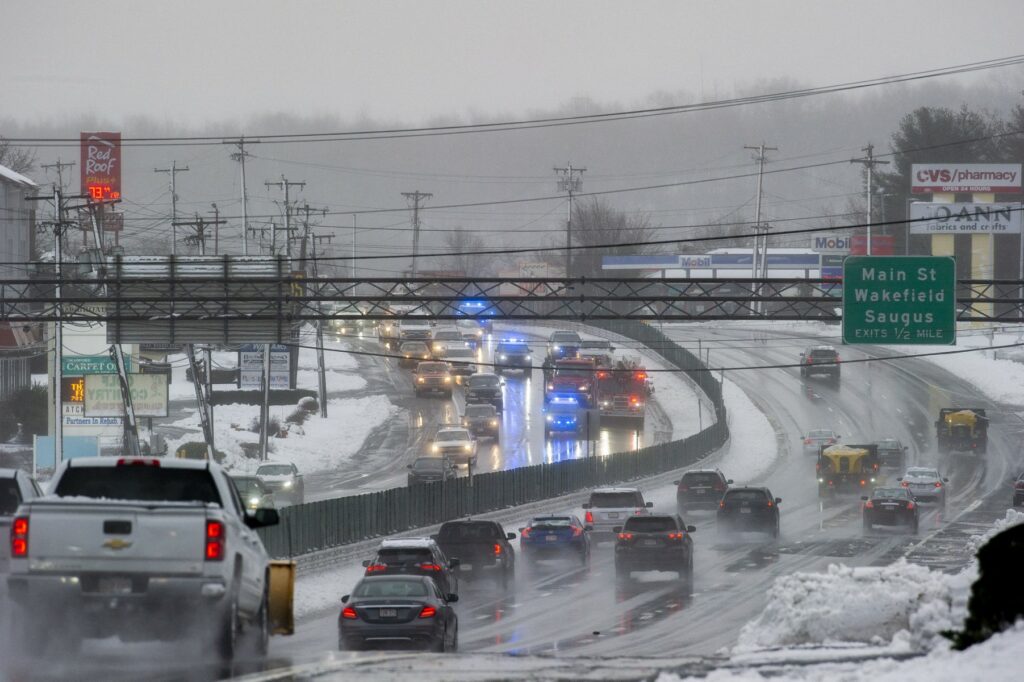
A major winter storm is threatening to blanket large portions of the United States with a dangerous mix of freezing rain and heavy snowfall, potentially creating “catastrophic” conditions across areas home to nearly 160 million people.
Several U.S. states have declared a state of emergency as the Arctic blast advances from the California coast across much of the continental United States, affecting central regions, including the Rocky Mountains and the Great Plains, according to forecasts.
The National Weather Service warned the storm could cause a “catastrophic accumulation of ice,” leading to prolonged power outages, widespread tree damage, and extremely dangerous or impassable travel conditions.
Meteorologist Ryan Maue cautioned that “the next 10 days of winter will be the worst in 40 years in the United States.”
“Think about where you can go, what you can do, and who may need even more help to survive the coming week. This is not an exaggeration or a joke,” Maue said.
He urged residents to prepare for temperatures dropping below -18°C (0°F).
More than 1,500 weekend flights had already been canceled, according to flight tracker FlightAware, including numerous flights in Texas.
In the southern state, many residents still recall the devastation caused by a similar storm in February 2021, which resulted in more than 200 deaths linked to hypothermia, carbon monoxide poisoning, and traffic accidents.
Texas authorities have assured the public that the power grid, which suffered widespread failures during that storm and left millions without electricity, is better prepared to withstand the extreme weather this time.
Internacionales
Juan Orlando Hernández’s family takes time to decide next steps after surprise U.S. release

Ana García, the wife of former Honduran president Juan Orlando Hernández, who was pardoned on Monday by U.S. President Donald Trump after being sentenced in 2024 to 45 years in prison on drug trafficking and firearms charges, told EFE on Wednesday that the family has not yet decided whether he will return to Honduras.
“We have not made any decision about that yet. Everything is still very recent, and as a family we are going to take the time to reflect carefully and make wise decisions thinking about the well-being of Juan Orlando, our children, and all our families,” García said at her residence in Tegucigalpa.
García wore around her neck her husband’s wedding ring, which she has kept since Hernández was held at a special police detention facility known as the ‘Cobras’ on the day of his arrest, February 15, 2022.
“We are still deciding many things. He has just been released, it has not even been 48 hours since he got out. So we are taking things calmly,” she reiterated.
She also explained that since she does not have a U.S. visa — revoked after her husband was requested for extradition following the end of his presidency in January 2022 — she has not been able to see him, but said she is “awaiting some form of communication from the United States” in order to do so.
García declined to reveal where in the United States her husband is currently located, although she stressed that she is confident she will have an opportunity to reunite with him.
Internacionales
One killed, 188 evacuated as wind-driven blaze rips through Kyushu neighborhood
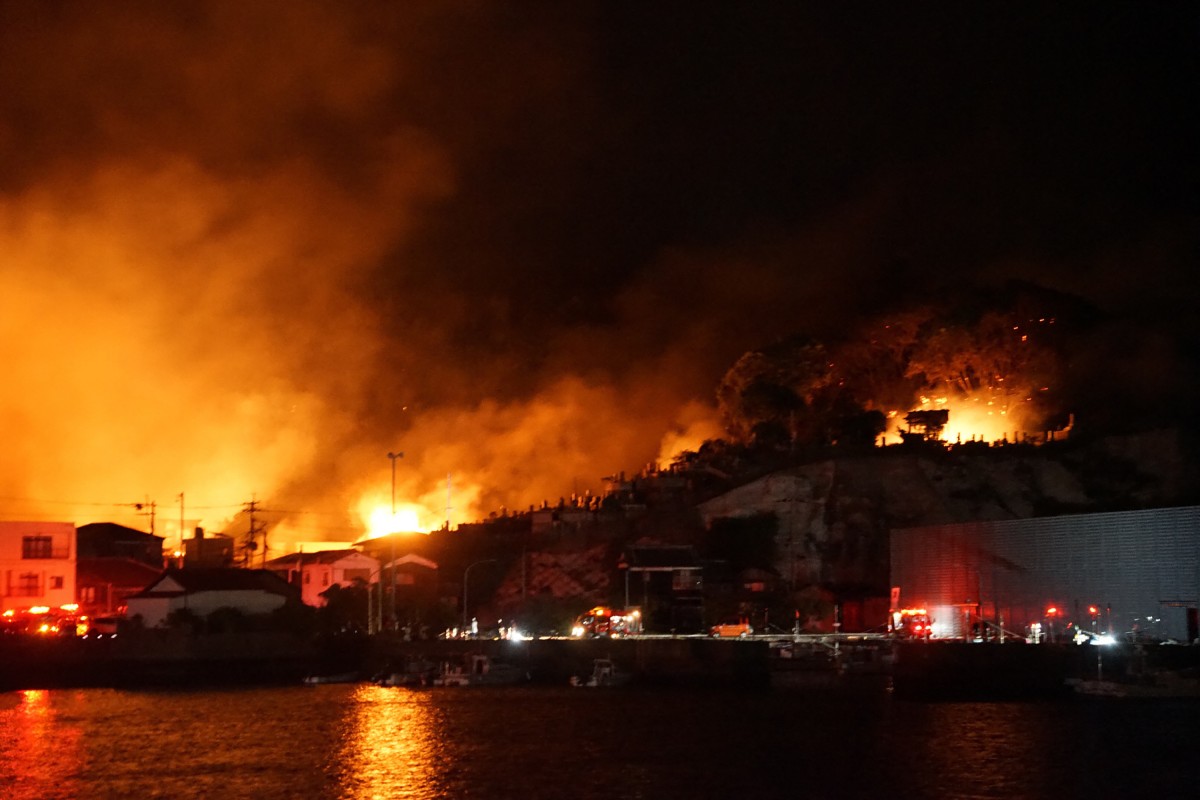
One person died and 188 residents were evacuated after a massive fire swept through at least 170 buildings in a residential area on the island of Kyushu, southern Japan, authorities reported on Wednesday.
The regional government confirmed one fatality. Public broadcaster NHK reported that police, who had been searching for a missing 76-year-old man, found a body inside his home.
Footage recorded on Tuesday night showed firefighters spraying water on towering flames engulfing homes, while residents were escorted to an improvised evacuation center.
“The flames rose so high they turned the sky red. The wind was strong. I never imagined it would spread so far,” a man told NHK.
“I was shaking with fear. I had never seen a column of fire like that,” another witness said.
The fire broke out late Tuesday, with at least 170 buildings affected. According to NHK, the blaze spread rapidly, likely fueled by a lack of rainfall, dry air, and the tightly packed wooden houses characteristic of the area.
-

 Central America3 days ago
Central America3 days agoGuatemala seizes over a ton of cocaine hidden in flour at Pacific port
-

 International4 days ago
International4 days agoDelcy Rodríguez seeks political agreements after Maduro’s ouster
-

 International3 days ago
International3 days agoHistoric snowstorm paralyzes Toronto after 60 centimeters of snow
-

 International3 days ago
International3 days agoSpain’s irregular migrant population rises to 840,000, study finds
-

 Central America2 days ago
Central America2 days agoGuatemala Police Arrest Prison Guard Caught in the Act of Extortion
-

 International4 days ago
International4 days agoFederal immigration agents kill man in Minneapolis, sparking protests and outrage
-

 Central America2 days ago
Central America2 days agoHonduras swears in conservative president Asfura after disputed election
-

 International22 hours ago
International22 hours agoFootball Fan Killed in Clashes After Colombian League Match
-

 Central America2 days ago
Central America2 days agoBukele leads public trust rankings as UCA survey highlights gains in security
-

 International2 days ago
International2 days agoWinter Storm Fern Leaves 30 Dead and Over One Million Without Power Across the U.S.
-

 International2 days ago
International2 days agoDoomsday clock moves to 85 seconds before midnight amid rising global risks
-

 Sin categoría2 days ago
Sin categoría2 days agoEight Killed in Series of Armed Attacks in Ecuador’s Manabí Province
-

 International3 days ago
International3 days agoRights group says nearly 6,000 killed in Iran protest crackdown
-

 International22 hours ago
International22 hours agoRubio Says U.S. Could Participate in Follow-Up Russia-Ukraine Talks
-

 International22 hours ago
International22 hours agoMissing Spanish Sailor Rescued After 11 Days Adrift in Mediterranean
-

 International2 days ago
International2 days agoSpain approves plan to regularize up to 500,000 migrants in Historic Shift
-

 Central America22 hours ago
Central America22 hours agoGuatemala President Says Starlink Terminal Found Inside Prison
-

 International3 days ago
International3 days agoVenezuela frees at least 80 political prisoners, NGO says
-

 Sin categoría2 days ago
Sin categoría2 days agoEl Salvador Launches Fourth Year of Ocean Mission to Protect Marine Ecosystems
-

 International3 days ago
International3 days agoEU launches new probe into X over AI-generated fake nude images
-

 International3 days ago
International3 days agoSevere winter storm grips U.S., leaves multiple dead as extreme cold persists
-

 International3 days ago
International3 days agoFrance debates ban on social media for children under 15

























